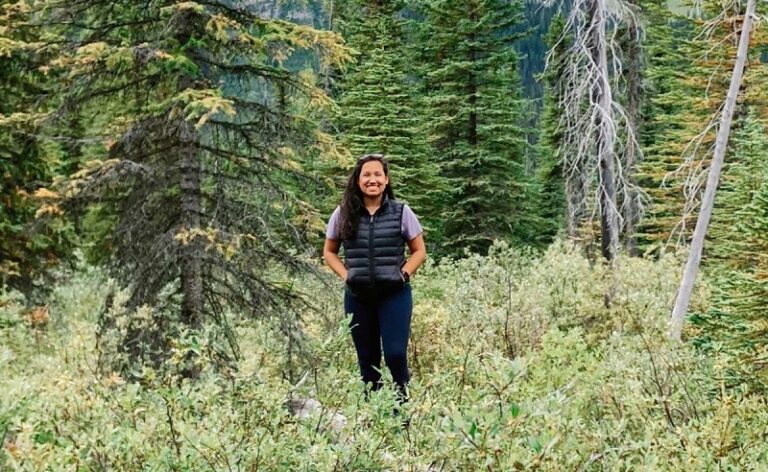Deadline: September 28, 2023
Applications are open for the John G. Bene Fellowship 2023. The Bene fellowship, a bequest from the estate of John G. Bene, is offered annually to Canadians and permanent residents of Canada pursuing master’s or doctoral studies at a Canadian university. Candidates should have an academic background that combines an interest in forests with social sciences (e.g., forestry, agroforestry, climate justice for women and Indigenous people, gender, biodiversity, or ecosystems).
They offer this fellowship to facilitate field research on the relationship between forest resources and the social, economic, cultural and environmental welfare of people in developing countries, particularly in the face of changing climate conditions. The successful candidate will propose research that benefits less privileged people in developing countries, focusing on women and Indigenous people, aiming to increase the resilience of individuals and forest communities facing difficult contexts and challenges. Note that work focused on genomics and/or genetic modification is not eligible.
Benefits
- Up to three awards of a maximum of CAD $23,000.
Eligibility
- Open to Canadians and permanent residents of Canada pursuing master’s or doctoral studies at a Canadian university. The award under this call will cover costs of field research conducted for a master’s thesis or doctoral dissertation in one or more countries of the Global South;
- You must have an academic background that combines an interest in forests, climate resilience, biodiversity or food systems addressed through social justice or equity. Applicants from interdisciplinary programs are eligible, provided their programs contain the specified elements;
- Your research proposal must be approved by your thesis supervisor and you must provide proof;
- Your proposed field of research must be conducted for a master’s thesis or doctoral dissertation and must take place in one or more developing countries;
- You must provide evidence of affiliation with an institution or organization in the developing region(s) in which the research will take place;
- Doctoral students must have completed coursework and passed comprehensive exams before taking up the award; and
- You may not be in receipt of two or more active IDRC awards at the same time, which includes the IDRC Research Awards. No time overlaps will be permitted. If you are in receipt of IDRC funds from another source (e.g. a Queen Elizabeth Advanced Scholars award or through a professor’s IDRC research grant) for activities that will still be active when and if you take up the John G. Bene Fellowship, you will be asked to demonstrate how funds from each are not being used towards the same objective.
Evaluation Criteria
The following criteria will be used to evaluate applications:
- Fit with IDRC mission and scope of the fellowship
- Overall appropriateness, completeness, quality and clarity of the research proposal
- Overall methodology and considerations of cultural, logistical and scientific constraints
- Overall feasibility, duration and timing of the research
- Originality and creativity of the research
- Potential contribution to existing knowledge on the issue
- Gender dimensions of the research
- Ethical considerations of the research
- Benefit to the communities where the research is taking place
- Suitability of the affiliated institution
- Potential for research results to be disseminated and used
- Budget
- Applicant’s capacity to conduct the proposed research, including academic training, local language capacity, professional skills, research experience and knowledge of country/region of research.
Application
The application deadline is on Thursday, September 28, 2023 at 23:59.
For more information, visit John G. Bene Fellowship.

